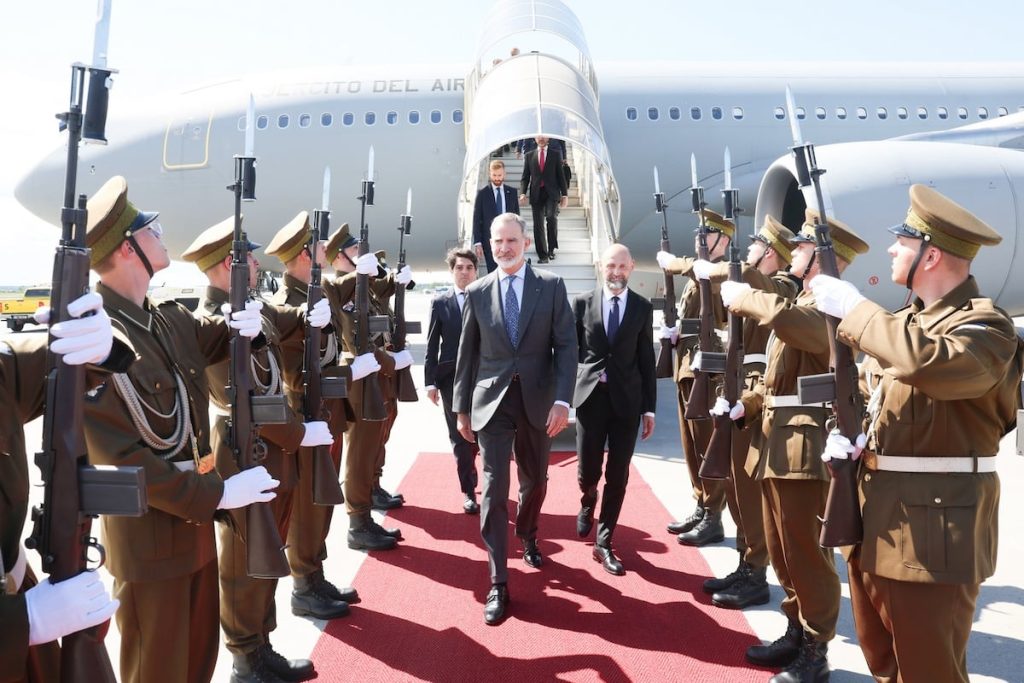Minister of Defense Margarita Robles will join King Felipe VI on his trip to the Baltic Republics, with a visit to Latvia to accompany the King to the Adazi base, where 650 Spanish soldiers are deployed as part of NATO’s Enhanced Forward Presence operation. The King arrived in Tallinn, Estonia on Sunday without any government members, a protocol known as a minister of the day, which is unprecedented. Foreign Minister José Manuel Albares is attending a meeting with his European counterparts in Luxembourg on Monday, while Defense Minister Margarita Robles had previously excused herself but is now set to join the King in Latvia.
It was initially planned for Chief of Defense Staff Admiral Teodoro López Calderón to accompany the King on the trip as a representative of the government, but he fell ill at the last minute on Saturday and had to cancel. The absence of a minister accompanying the King on an official international trip is considered an anomaly, as all acts of the King must be endorsed by the government according to the constitution. The late addition of the Defense Minister is an attempt to rectify this anomaly and ensure proper government representation during the visit to the Baltic Republics.
King Felipe VI and Estonian President Alar Karis reviewed troops upon the King’s arrival in Tallinn on Sunday, marking the beginning of his tour of the three Baltic countries. The visit highlights the strategic importance of these nations in the context of NATO cooperation and regional security concerns, particularly in the face of Russia’s proximity and potential threats to the Baltic States. The participation of Spanish troops in operations like the Enhanced Forward Presence demonstrates the country’s commitment to NATO’s collective defense and support for its Baltic allies.
The Minister of Defense’s inclusion in the visit to Latvia underscores the importance of maintaining strong diplomatic and military ties with NATO allies, especially in a region as sensitive as the Baltic States. The presence of Spanish troops in the Adazi base near the Russian border serves as a deterrent to potential aggression and reinforces the shared defense commitments of NATO member states. The King’s tour of the Baltic Republics aims to strengthen bonds with these countries and demonstrate solidarity within the alliance in the face of regional security challenges.
Overall, the King’s visit to the Baltic Republics, with the eventual inclusion of the Minister of Defense, represents a reaffirmation of Spain’s commitment to NATO and its allies in the region. The tour highlights the strategic importance of the Baltic States in the context of European security and the ongoing efforts to maintain stability and deterrence in the face of potential threats. By participating in these joint exercises and deployments, Spain demonstrates its solidarity with NATO partners and its dedication to upholding the alliance’s collective defense principles in the face of evolving security challenges.


